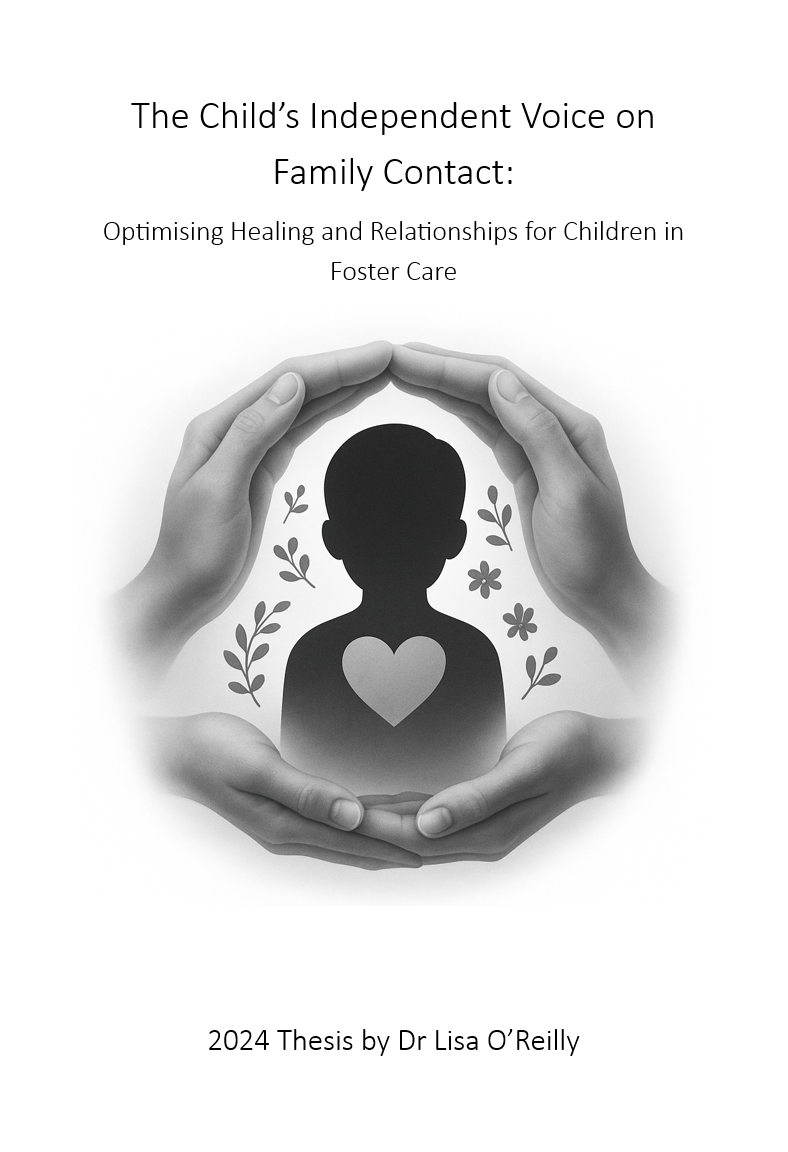The Child’s Independent Voice on Family Contact:
Optimising Healing and Relationships for Children in Foster Care
Thesis Introduction
Children in foster care have experienced loss and pain in indescribable ways. Moving to a safe and stable home can be positive in some ways but challenging in others. A Guardian ad Litem (GAL) must learn about children's experiences, feelings, and needs and represent their voices through court proceedings and life in care. This study explores the critical role of GALs for children in foster care, with a particular focus on family contact. A mixed-method approach was used to collect the data from GALs and District Court Judges. The study's key findings reveal that GALs are instrumental in enhancing family contact for children where safe and appropriate. The role is holistic, encompassing advocacy, mediation between parties, emotional support, and solution-focused around the child's best interests. GALs promote play-based interactions between children and parents during contact, recognising play's developmental and psychological benefits in healing and developing relationships. The data highlights how judges highly value the independent nature of GALs, as their impartiality ensures that the child’s best interests are prioritised over competing interests. In essence, the findings identify the integral role of the GAL in providing services to meet the emotional, psychological, and legal needs of children in state care. Their work facilitates legal and rights-based understanding of the child’s needs in supporting judicial decisions.

